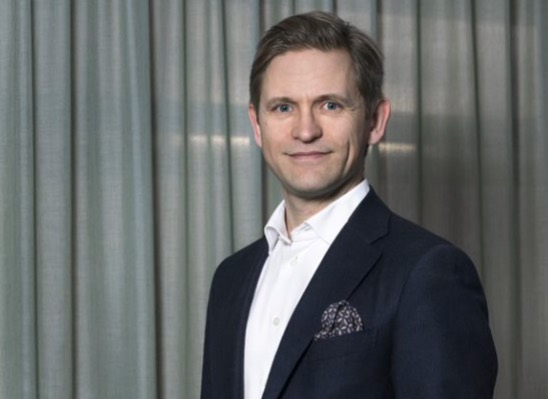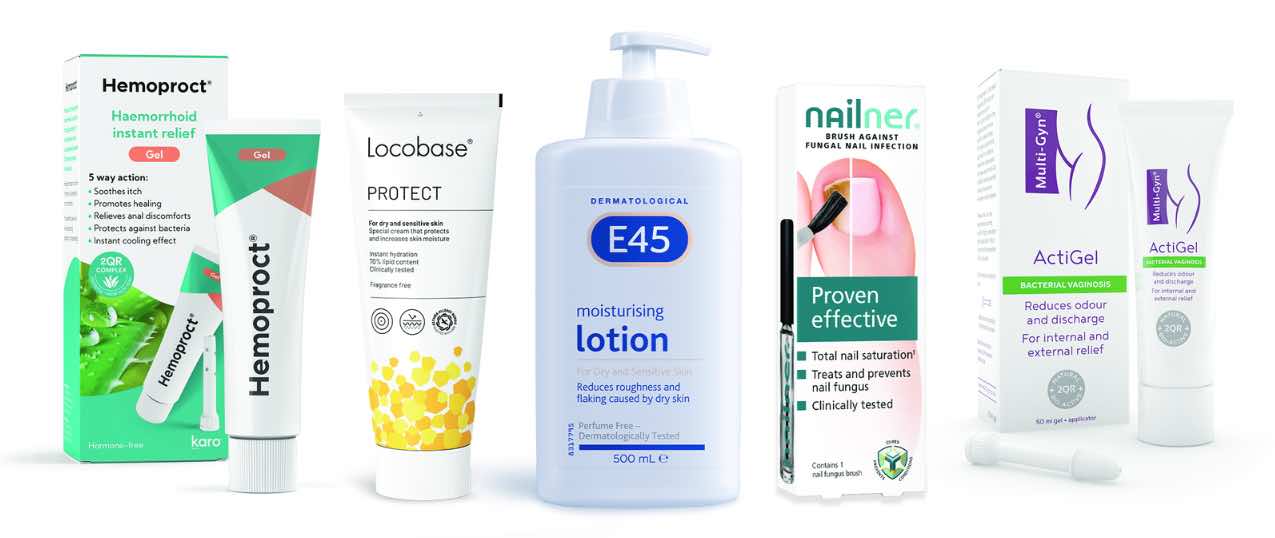Nordic knowhow
In Retail & Merchandising
Follow this topic
Bookmark
Record learning outcomes
With headquarters in Stockholm, some 350 employees in 15 countries, and products sold in 90 countries, Karo Pharma is the small company with a big reach that you don’t know you know.
Majority owned by investment group EQT, Karo’s over-the-counter products and prescription medicines generated revenue for the company of EUR300 million in 2021, with Europe and the Nordic region as its core markets.
Embodying its tagline of ‘smart choices for everyday healthcare’, the company’s portfolio includes more than 80 brands across seven categories – but its aims don’t stop there. “We don’t just want to connect patients with the right products,” says ceo Christoffer Lorenzen. “We also help them make an informed choice by offering clear information and support through education and digital services.”
Recent expansion
Lorenzen joined Karo in 2019, shortly after EQT became its new majority shareholder, and has overseen some rapid expansion during his time in the ceo seat.
“In the last couple of years, Karo has fundamentally changed direction from a primarily Swedish pharma company to a European, international commercial healthcare company by increasing our presence in existing and new markets and expanding our portfolio of products and services across our categories,” he says.
Primarily driven by mergers and acquisitions, Karo has quadrupled its revenue in the past five years by acquiring companies with brands that have strong digital traction, as well as buying individual brands from larger companies, such as its recent purchase of dermatology hero E45 from Reckitt Benckiser in April 2022 for a total consideration of £200m.
“Our strategy is to acquire brands whose equity and history we respect, but which we think have lacked focus from their existing ownership,” says Lorenzen, referencing the E45 take over. “What we look for are opportunities to optimise the supply chain and add resources to a brand to boost what we call ‘mental and physical availability’ in the marketplace and activate that particular product in the mind of our customers.”
Future plans
One of Karo’s largest international hubs is in the heart of Rotterdam, from where the company plans to continue its future expansion into Europe. But it places huge importance on its digital real estate as well. “This is because we know that now, more than ever, a much larger part of the consumer journey takes place online,” Lorenzen says.
“Although the final transaction may happen in a physical or online pharmacy, we have seen consumers increasingly make self-informed decisions using the internet to seek out answers to educate themselves around conditions and treatment options, and we want to meet them in that space with the best possible evidence and advice.”
Next on the ‘to-do’ list is a space Lorenzen calls ‘health minus’. “People are always happy to project how well they are doing in ‘health plus’ categories,” he says. “So they will tell you how they have taken up running and are eating healthily and focusing on getting good quality sleep, but they are less likely to open up about the ‘health minus’ categories, which are the hidden, perhaps embarrassing, conditions such as haemorrhoids, vaginal discomfort, and some skin diseases that people don’t often talk about.
“These conditions can lead to under-treatment and under-diagnosis, so online is the space to increase awareness of the advice and treatment available for them, most of which are simple to address,” he adds.
“Finally, we make sure our brands are there when and where our consumers need them – and that they are easy to access in stores, pharmacies, and online. After all, our purpose is ‘smart choices in everyday healthcare’, so we see our role as providing high quality and trustworthy content and information so people can make the best choice, even if they don’t end up treating with our product.”
Pandemic outcomes
The importance of access to good information, evidence-based advice and trusted products was thrown into stark relief by the Covid-19 pandemic, and Karo was not immune to the challenges the past two-and-a-half years have presented.
Lorenzen says impact on the company’s financial targets and cash flow was “limited”, helped by the fact that it operates in different categories that, he says, “helped balance sales with fluctuating demands”.
Nonetheless, he admits that what he describes as a “unique and sensitive period of time for everyone” forced the company to do a lot of things differently. “We had ambitious plans for the businesses that we had recently acquired and we definitely had to slow down the integration that we had planned for those,” he says. “Then, of course, there were slowdowns in some of our picking and packing warehouses as well as production capacity with some of our contract manufacturers – such as those in Northern Italy, which was very badly impacted by the pandemic – which led to some inevitable delays in our supply chain. But the efforts of our entire team enabled us to successfully manage what was a very volatile business environment.”
‘The Karo Way’
Karo continues to build on lessons learned from the pandemic about decisive action to encourage a business culture of entrepreneurship, collaboration and commercial insight in what it calls ‘The Karo Way’.
“We encourage everyone in the business to stay curious and think beyond the established ways of doing things,” says Lorenzen, “which is how we uncover opportunities that our competitors don’t see or choose not to respond to. If you have an organisation that poses questions but also empowers staff to act on the answers, it can lead to interesting outcomes.
“We believe by empowering our team and making it playful to go to work, we can lower the barriers in terms of trying things out, and if people take up an initiative based on a great idea and it fails, it’s still a learning opportunity.”
Karo’s acquisition of E45 is one such opportunity, with Lorenzen seeing scope for growth in the UK market and further engagement with community pharmacy.
“E45 is now Karo’s biggest brand and our goal is to make it the number one choice for problem skin, focusing on its heritage as the expert brand for dry and condition-prone skin,” says Lorenzen. “Many people in the UK have been brought up with the brand and we are proud and pleased to have it in our portfolio, but we know that less of E45’s revenues come via e-commerce channels compared to other dermatology brands, so it will be a high priority for us to focus on engaging consumers by increasing its online profile in order to drive sustainable future growth.”
Conscious credentials

Karo’s conscious collaborations don’t end there. As a response to the war in Ukraine, Karo worked with global aid organisations and the Swedish authorities to donate 1.6m doses of paracetamol and ibuprofen, Decubal Hand Wash and DAX Alcogel hand sanitisers to Ukrainian hospitals and emergency units.
It has also created the Karo Pharma Stay Healthy Fund, which enables employees to select a non-profit organisation of their own choice to which Karo donates EUR15 for every hour they have worked voluntarily for their chosen organisation.
“Sharing ideas and collaborating across borders aren’t just aims for business,” says Lorenzen. “Helping non-profits and doing voluntary work are natural extensions of our mission to deliver smart choices for everyday healthcare.”

